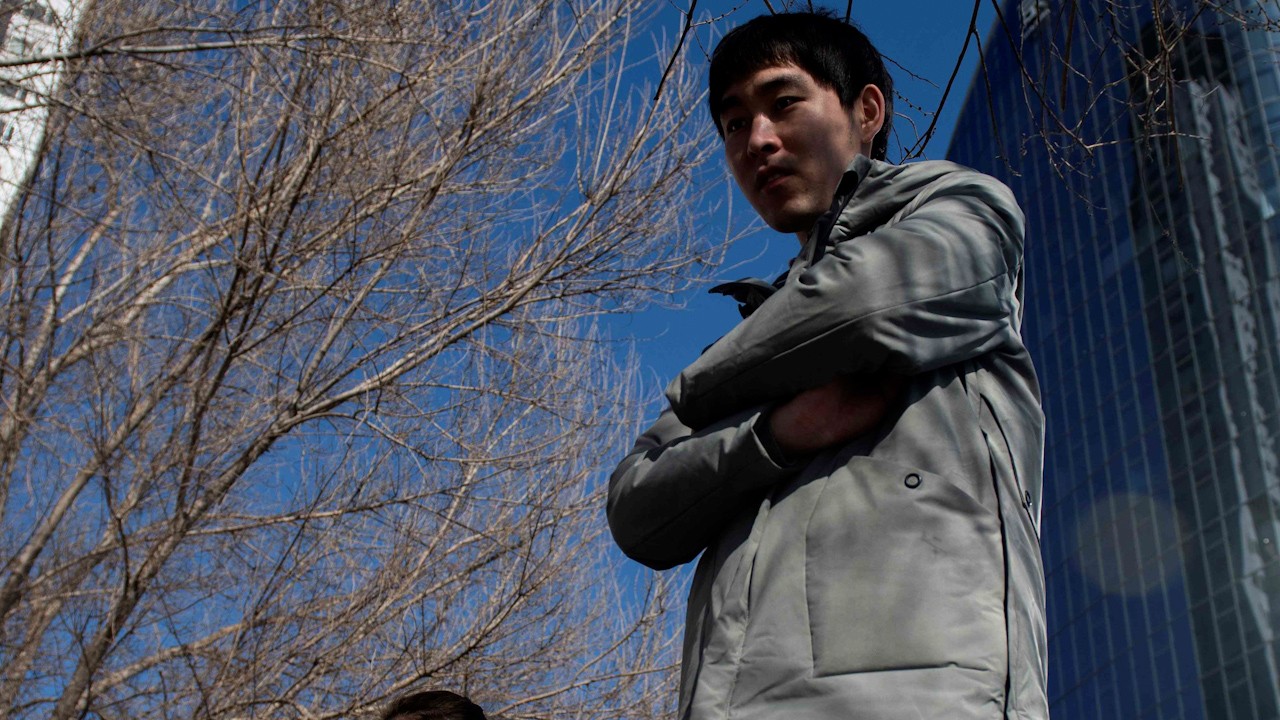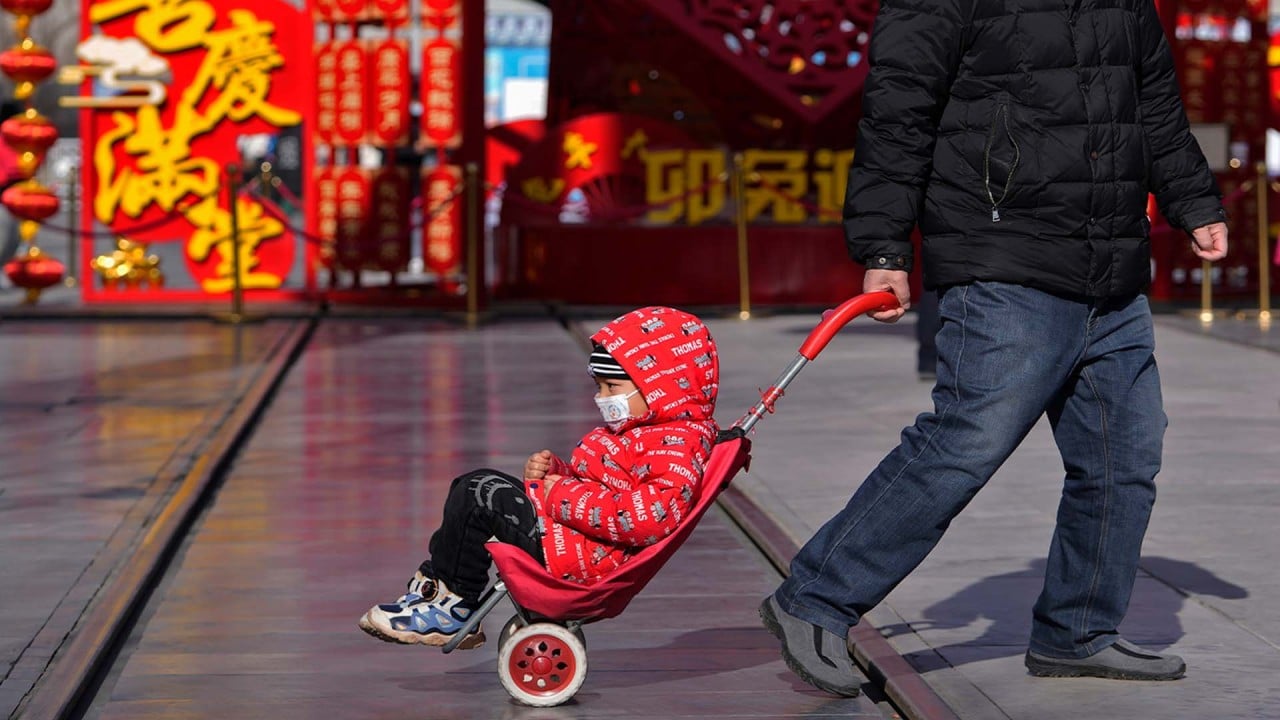
China jobs: trash inspector with a master’s degree shows how ‘education reform is imminent’
- China’s people are highly educated, so where is the ‘talent dividend’? For many fresh graduates, ‘settling for an opportunity’ is the safer bet now
- China’s unemployment rate among those aged 16-24 continued its monthly rise in June, reaching 21.3 per cent
At 25 years old, Liu Maomao is no longer considered youthful by labour-demographic standards. And that means her unemployment is not reflected in the worsening job market among the 16-24 “youth”.
Instead, her lack of a job – as with other struggling adults in their mid-twenties – is now being reflected in the broader jobless rate.
“Hopefully I’ll finally get a job that takes more than a bachelor’s to do – such as sales – something that involves more thinking and innovation,” she said. “Otherwise, what was the point of me spending an extra three years on studies?”
The competition turned out to be fiercer than I imagined
It has been about a month since Liu finished her postgraduate studies at a university in central China’s Henan province. She has ideal jobs in mind, but she suspects it could take a few months to secure something desirable.
“The competition turned out to be fiercer than I imagined. There are many applicants even for positions that nobody would have cared to consider in the past few years,” said Liu, who has a master’s degree in tourism management and wants to work for a state-owned enterprise.
If civil service does not pan out, she would like to teach at a public college, which tend to be better funded and more stable than private higher-education institutions in China. However, she noted that her lack of a PhD could make it particularly difficult to work at a public university.
But Liu continues to aim high for something she will love, even if it means forgoing on work and not settling until she has at least thoroughly explored her options.
She says some of her higher-education schoolmates – those who have recently secured jobs before and right after graduation – have been content “settling for an opportunity” as the number of applicants with similar qualifications continues to grow while China’s economic recovery keeps showing signs of being strained.
These factors have led to many young adults prioritising job security, taking whatever work they can find – regardless of whether it is fulfilling or utilises the knowledge and expertise they have amassed in their chosen field of study.
Meanwhile, the overall urban surveyed jobless rate was unchanged at 5.2 per cent in June.
“The job offers that the class of 2023 have got are generally worse than what previous classes got,” Liu contended. She also pointed to the compounding effect, year after year, with many people who graduated during the pandemic years still looking for a job.
Examples of people taking work that has nothing to do with their degree, and which does not challenge them intellectually, have created some buzz recently among Chinese netizens.
In one recent case, a subdistrict government in Guangzhou, Guangdong province, recruited two people holding a bachelor’s degree and a master’s, respectively, last month as rubbish sorting inspectors – trash handlers. The job post had required only an associate’s degree, China National Radio reported, but better-educated applicants applied.
“There was no reason to refuse” someone with a more advanced degree, one staff member was quoted as saying.
Calling it a “talent dividend” – in comparison with the diminishing demographic dividend that China enjoyed in the past decades – officials argue that the country still has a 900-million-strong workforce with a rising overall level of education to provide a strong impetus for development.
Though China’s population peaked earlier than expected, falling by 850,000 to 1.412 billion last year, young adults just entering the job market had received an average of 14 years of education by last year, according to government data frequently cited by official media.
But some experts warn that China still faces big challenges to achieving a talent dividend, including poor higher education quality, a mismatch between students’ majors and available jobs, and decreasing returns on education investments.
Chu Zhaohui, a senior researcher with the National Institute of Education Sciences, said it is pointless to talk about a talent dividend “when people can’t find their right place”.
He noted that an annually growing number of university graduates – reaching a record high of 11.58 million this year – does not mean China is producing the human resources that many firms want.
And holding an advanced degree isn’t necessarily enough.
“One undeniable fact is that many master’s or PhD holders in China today lack judgment as well as information and scientific literacy,” he said. “The education we have now is consuming social wealth but not paying off.”
Lu Mingtao, a researcher with the National Institute for Finance and Development, found in his study that the return on investment in higher education fell from more than 60 per cent in 1982 to 10 per cent in 2015, and Lu expected it to stay around that level until 2030.
It has so far dropped to a level similar in the United States, Lu noted.
“It won’t be a big issue if we remain here. But we need to watch out for further decreases, considering the huge expansion of China’s higher education in the future, the US’ dominance in modern services that are talent-intensive and high value-added, and the rapid replacement of human workers by artificial intelligence,” he explained.
However, the US’ talent competitiveness is also being affected by a shrinking workforce, as more Baby Boomers – people born just after World War II – retire and the birth rate remains low, according to Harry Holzer, a professor with the McCourt School of Public Policy at Georgetown University.
“We have had labour shortages here, especially in certain occupations and industries. In some ways, that makes the US and China situations more similar,” he said.
“Birth rates in the United States remain pretty depressed. You don’t want to be one of these places like Japan. Your economy tends to stagnate. You need to have refreshment due to young labour,” Holzer said.
But a 2020 International Labour Organization report estimated that 27 per cent of US workers are overeducated, and that just 15 per cent were undereducated. That gap pointed to a level of “wasted” talent in the US, said Enrique Lopezlira, director of the Low-Wage Work Programme at the University of California Berkeley Centre for Labour Research and Education.
Although American universities attract “many students from all over the world”, Lopezlira said, competition is growing at universities in Canada and the UK, and more Americans are heading abroad for work after graduation.
Ever since the pandemic, everyone seems to be hiring, but no one’s hiring
Talent outflows aside, some American jobseekers aged 16-24 already say employers in popular fields and desirable parts of the country seldom respond to work applications.
Berkeley undergraduate student Zack Rockport said this month that he had submitted nearly 30 applications for part-time work in the San Francisco Bay Area over the past six weeks but got no credible replies.
“Ever since the pandemic, everyone seems to be hiring, but no one’s hiring,” he said.
He also urged the government to ease controls over salaries in sectors ranging from science to culture, as he contends these have been skewed by intervention from authorities over the decades, despite market reforms.
Yuan Xin, a professor of demography at Nankai University’s School of Economics, said that China has a sufficient workforce with advanced degrees, despite the country’s population decline. But whether China can fully utilise those degrees and know-how remains crucial, he noted.
“A major indicator of demographic dividend is employment,” Yuan said. “We’re seeing master’s and doctoral degree holders delivering food for a living – this shows a mismatch between what the education system is producing and what the market needs.
“Education reform is imminent.”











